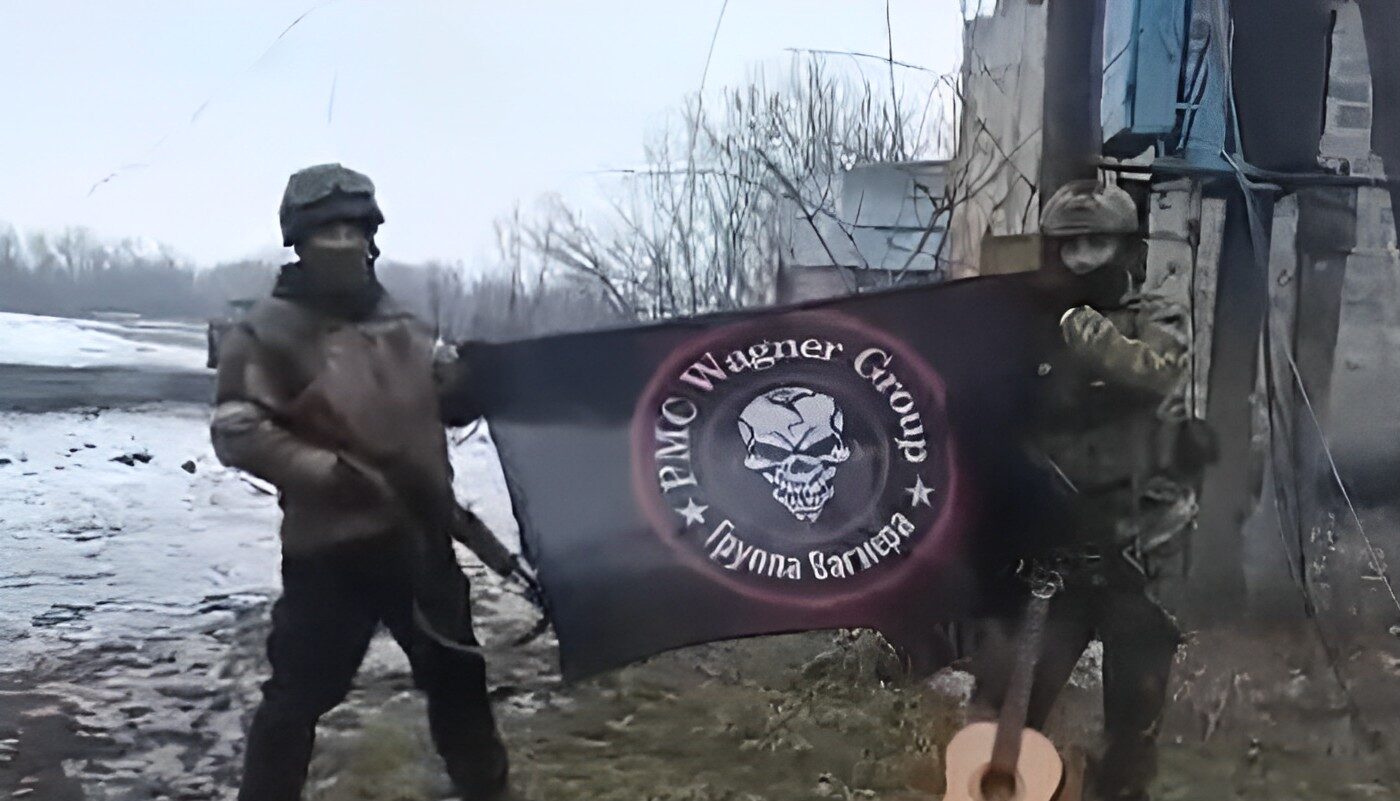 Two Wagner soldiers in Mykolaivka, Ukraine by 2s3m akatsiya
Two Wagner soldiers in Mykolaivka, Ukraine by 2s3m akatsiya
To Unmask Russian Gray Zone Tactics, Label Wagner a Terrorist Group
August 24th marked the assumed demise of Yevgeny Prigozhin, the chief of the Wagner mercenary group who led a mutiny march on Moscow in June. The plane crash, likely a result of Russian air defenses, provides an opportunity for the Biden Administration to evaluate what role the mercenary group has in Russia’s gray zone strategy now that the leader of its “justice march” is gone. To force Russia to choose whether Wagner is an independent mercenary group or an extension of the state, it is about time the United States designated it as a Foreign Terrorist Organization.
Private military corporations arose in Russia in the 1990s and soon expanded their operations internationally. Mercenary groups are technically unrecognized in Russia due to a 1996 law banning Russian citizens from acting as foreign soldiers. However, since 2014, Russia has used the perceived independence of the Wagner Group to pursue its political interests abroad, giving it plausible deniability for war crimes in Ukraine and ongoing coups in Africa. This relationship provides cover for Putin’s global ambitions and is foundational to Russia’s gray zone strategy to undermine American national security.
The Wagner Group, while not a traditional Foreign Terrorist Organization, fits the criteria to be designated as one. According to the Immigration and Nationality Act, a foreign organization must be engaged in terrorist activity or have the intent and capability to engage in terrorist activity and must threaten the security of Americans or the country’s national security to be placed on the list. While most groups listed as Foreign Terrorist Organizations are from the Middle East or North Africa, terror is not bound by geographic or cultural boundaries. Like the Islamic State in Iraq, Wagner’s members have been accused of committing war crimes, such as torturing and killing Ukrainian prisoners of war. The group’s connections to Russia mean that while its members’ motivations are financial, its backer’s motivations are explicitly political: to increase Russian influence and undercut United States national security.
When a group is labeled a Foreign Terrorist Organization, three restrictions are put in place: it bans persons under the authority of the United States from knowingly providing support or resources, bars entry of non-American members into the United States, and requires American financial institutions to block transactions of group assets. According to the U.S. House Helsinki Commission, these restrictions would prevent American entities from funding Wagner forces, dissuade nonaligned states from backing them, and set a precedent for American allies to designate Wagner Group as a terrorist organization, further harming its operability.
Complicating the Wagner Group’s international status is its enmeshment with legitimate African military forces, making its designation as a Foreign Terrorist Organization controversial. While members of Congress have put forward a bill advocating this choice, the Biden Administration is concerned that African countries supplementing their forces with Wagner mercenaries would face sudden restrictions, harming trade and security relations with those governments. These concerns are valid, but the risks of letting Russian influence permeate Africa are much more significant than the initial complications of designation. The Biden Administration needs to realize that Wagner’s presence risks Russia turning these countries against the United States—and not addressing the problem now will hurt relations and stability in the future.
Designating the Wagner Group as a Foreign Terrorist Organization places Russia in a dilemma regarding its gray zone strategies. In response, it could choose to incorporate Wagner forces into its conventional military at the cost of removing its plausible deniability. This hits at the core tenant of Putin’s gray zone strategy, requiring Russia to admit its greater role in conflicts in the Sahel and elsewhere. Putin’s other option is to avoid taking action, leaving the group to fend for itself. However, this risks Russia losing ground in Ukraine and its political influence in the countries that Wagner has permeated. Wagner Group leadership could see Russia’s inaction as betraying the group, increasing the likelihood of mutinies like that of Prigozhin’s earlier this year
For too long, the U.S. has allowed Russia to use mercenaries to undermine international security. Labeling the Wagner Group as a Foreign Terrorist Organization is an effective avenue to counter Russian gray zone tactics in Ukraine, Africa, and the Middle East. The issue encompasses more than Wagner: other private military corporations exist, and the United States should be vigilant in determining whether these groups qualify despite not fitting the traditional mold. By starting with Wagner Group, the United States can begin to push back on a central pillar of Russia’s malignant foreign influence.





